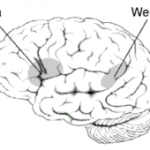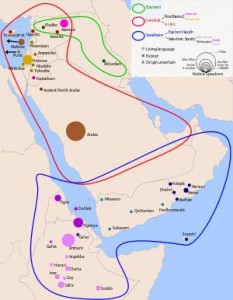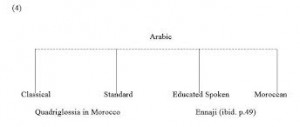Archives
now browsing by author
Blog 4, The struggles and differences in languages
Arabic Phrases
Semantics/ Phonology
I was raised in a Multi-Lingual environment because I was adopted, lived with two different set of family, my Biological and my foster. I spent most of my youth travel between different languages, cultures, religions, and countries. I was exposed to several languages at a very young age my first language was the language of my nanny, Spanish. Then a I learned my foster mom’s English, my foster dad’s Pushto, and my biological family’s Farsi. Also I was consistently shifting from Pakistan, which spoke Urdu, and the United States; as a result, learning and adopting new languages and cultures became easy and second nature to me.
I am currently taking up Turkish writing, reading, and dialog. However, I am still working on perfecting my Arabic. Of all the languages I think Arabic is a bit difficult due to its several different regional dialects. And since the Language is extend from the Arabian Peninsula to the West Africa, semantics and phonology is a riddle within each region.
Example of Phonological differences:
“Kursi” means ‘chair in Standard Arabic.
Villages in Palestine–>Chursi Others–>Kursi
“Qalb” means ‘heart’ in Standard Arabic.
Sham (Northern Arabia; Syria, Palestine, Lebanon, Jordan)–>Aalb
Egyptian–>Aalb Gulf Arabic–> Galb African Arabic–>Qalb
Example for Semantics in manners/phrases:
“Kay fahalouka” means ‘how are you’
Villages in Palestine–>Chifik Egyptian–>Ezayak Iraq–>Shouko Mouko
Gulf Arabic–>kai fahal African Arabic–>Kidair
Sham (Northern Arabia; Syria, Palestine, Lebanon, Jordan)–>Kifik
Do to these variations; it’s a bit difficult to master the Arabic language. But thanks to YouTube and my amazing friends they send me videos and emails to expose to different dialects. The most helpful out of all the tactics is the actually conversation I exchange with Arabs. I need someone to hear and correct my pronunciation, phrases, and grammar so I can use the same material more efficiently.
Here are some different dialects of Arabic:
Egyptian
Gulf Arabic
The difference in the Arabic accent like any other language reveals the speaker’s socio-economic status, level of education, and the speaker’s ethnicity. Most educated and city folks drop their “Q” sound and replace it with an “A” in beginning of the word. Most Villagers replace their “K” with “Ch” sound in the beginning of the word. Egyptians have the most interesting Arabic because unlike most regional dialects; Egyptian Arabic doesn’t pronounce its “Ja” sound. Instead, Egyptian Arabic replaces it with a “Ga” sound, regardless of the sound’s location.
Furthermore, Syrians also pronounce their “Ja” different. Although, they don’t replace the sound with a completely different sound but the “Ja” is more French than Arabic. As far as the African Arabic like Moroccan, Algerian, Libyan…, this Arabic consists of different languages assimilated in the dialect. These regions not only speak Colonial Arabic but also Berber (language spoken by villagers).
The Gulf is the closest to classical Arabic, it still maintained its posture in pronouncing most letters to its origin, the semantics of the language, and phrases structure didn’t change significantly either.
Accent Challenge/ Language Challenge
Group Members:
Aleena
Alanzo
Ding
Tiang’oa
Angela
In the first video clip two different native speakers, Chinese and North American, say a phrase in their language and the other student has to mimic it.
https://drive.google.com/file/d/0B9ay7f8VqhWKWXJsTlpCMFYtX2M/view?usp=sharing
In the Second video clip all group members mimic the accents spoken in four different regions;
the southern south mainly Texas, Spanglish, East Coast, and typical Southern California. however the southern Californian accent was broken into two parts because the guys and girls use completely different structure of language.
https://drive.google.com/file/d/0B9ay7f8VqhWKSnR4dmczTGZYeFk/view?usp=sharing
https://drive.google.com/file/d/0B9ay7f8VqhWKaklVc1lGRmtyZ28/view?usp=sharing
https://drive.google.com/file/d/0B9ay7f8VqhWKd3ZvcUtJQldWOTA/view?usp=sharing
https://drive.google.com/file/d/0B9ay7f8VqhWKYzcyeWh6OEV6Q0U/view?usp=sharing
https://drive.google.com/file/d/0B9ay7f8VqhWKblRXZmpiTU5LZWc/view?usp=sharing
https://drive.google.com/file/d/0B9ay7f8VqhWKNWFOXzc1dncwcFU/view?usp=sharing
https://drive.google.com/file/d/0B9ay7f8VqhWKbFdEQW1FamFYU1k/view?usp=sharing
https://drive.google.com/file/d/0B9ay7f8VqhWKWlV5UmQ3SklGN0U/view?usp=sharing
https://drive.google.com/file/d/0B9ay7f8VqhWKMVpudmY3cVRrWUU/view?usp=sharing
https://drive.google.com/file/d/0B9ay7f8VqhWKMVpudmY3cVRrWUU/view?usp=sharing
https://drive.google.com/file/d/0B9ay7f8VqhWKMFdvMkNKMWNjV2M/view?usp=sharing
https://drive.google.com/file/d/0B9ay7f8VqhWKLVdCdzRaRlVMSWM/view?usp=sharing
https://drive.google.com/file/d/0B9ay7f8VqhWKNll3VWlMTGVBNWs/view?usp=sharing
https://drive.google.com/file/d/0B9ay7f8VqhWKMkZwSXJhTjhtM2M/view?usp=sharing
https://drive.google.com/file/d/0B9ay7f8VqhWKdVEzVXViT3p2aTg/view?usp=sharing
https://drive.google.com/file/d/0B9ay7f8VqhWKWnhRVlpKaVp0MEE/view?usp=sharing
https://drive.google.com/file/d/0B9ay7f8VqhWKY1JPUzNZeGRYSGs/view?usp=sharing
https://drive.google.com/file/d/0B9ay7f8VqhWKZS1lM3FCZmNSQ1U/view?usp=sharing








 D5 Creation
D5 Creation